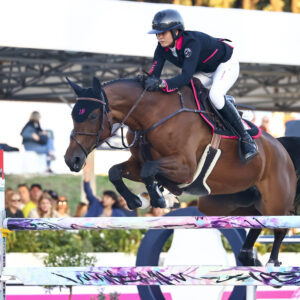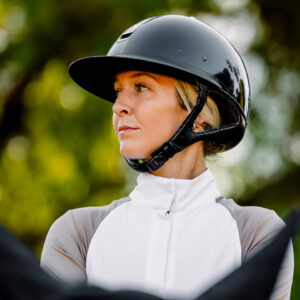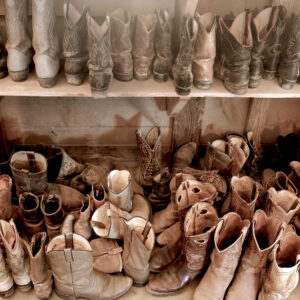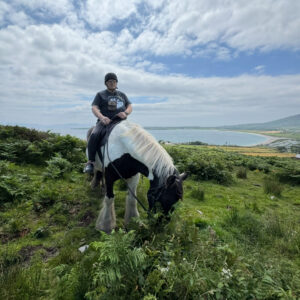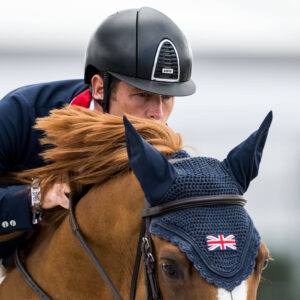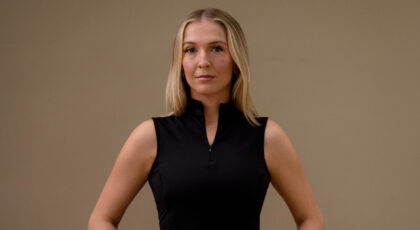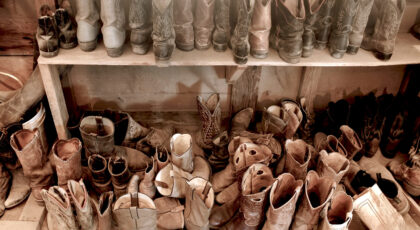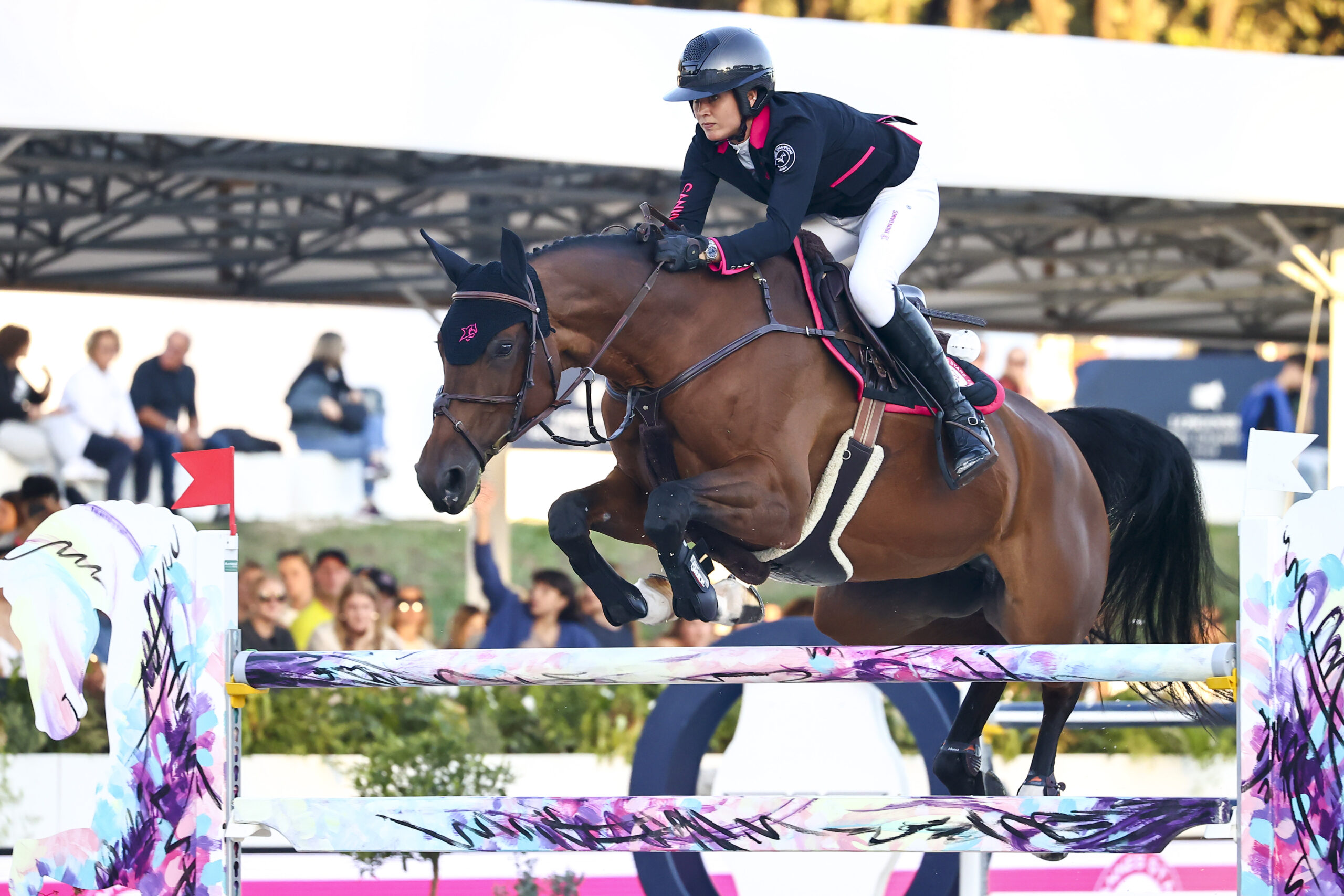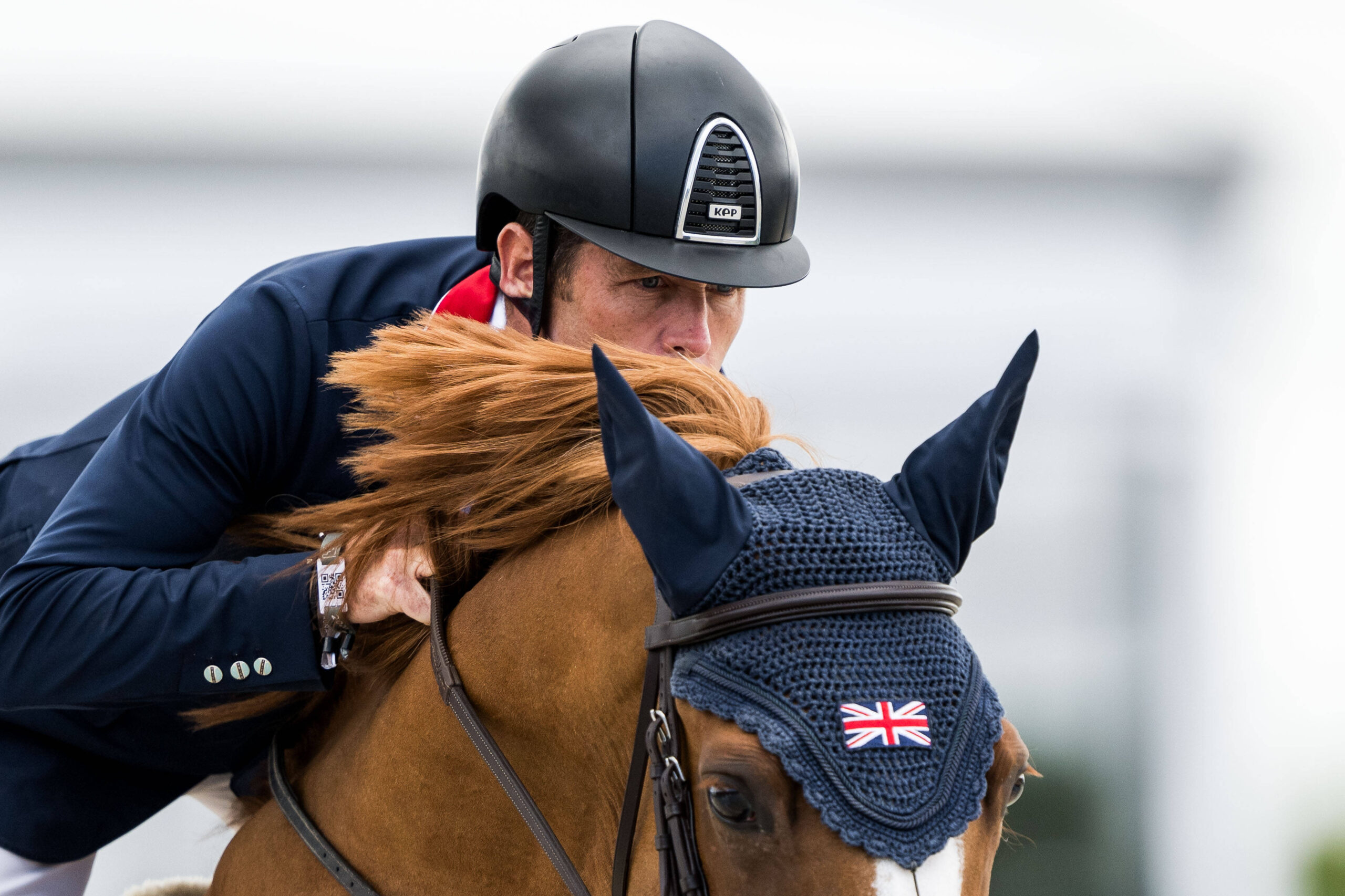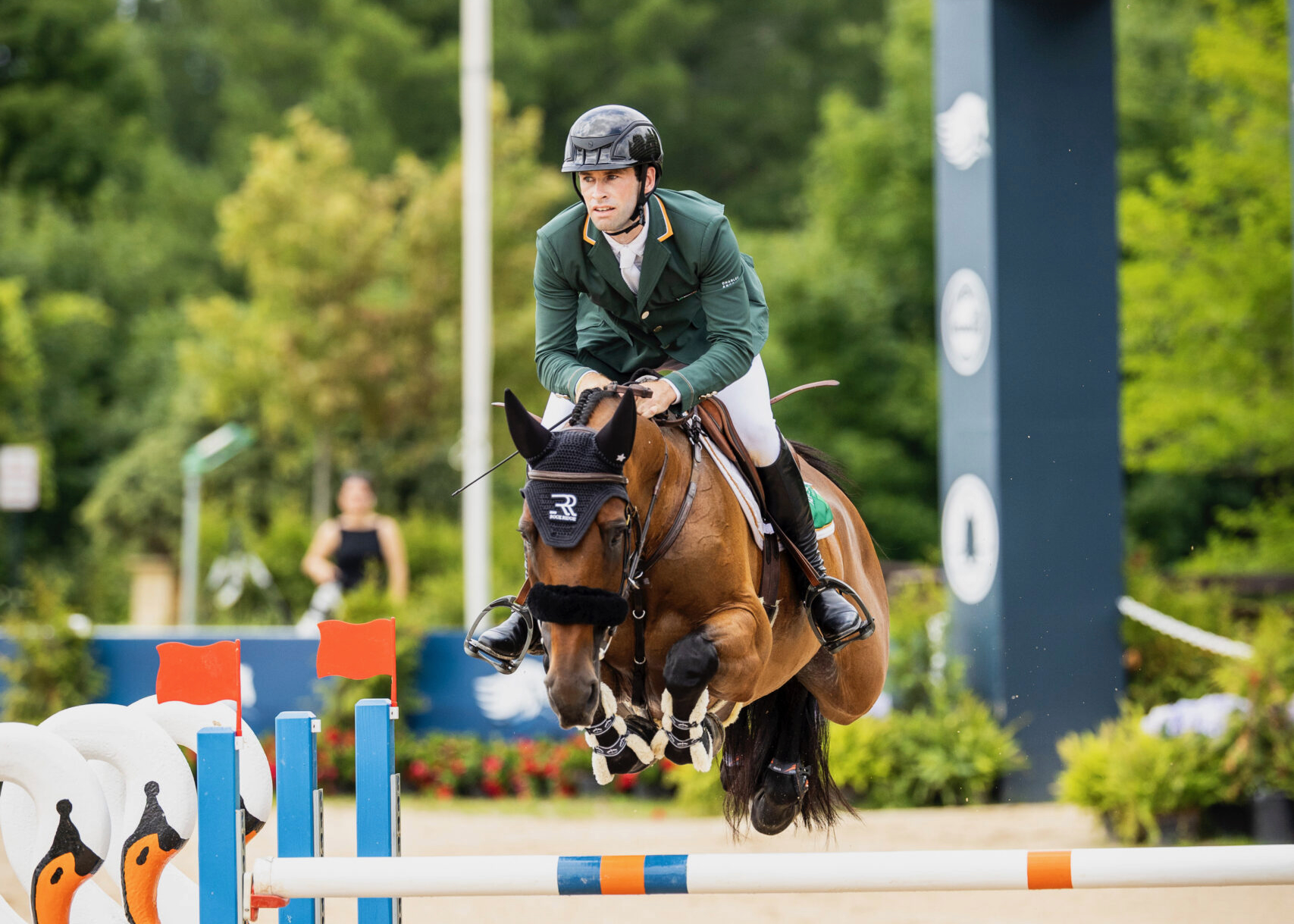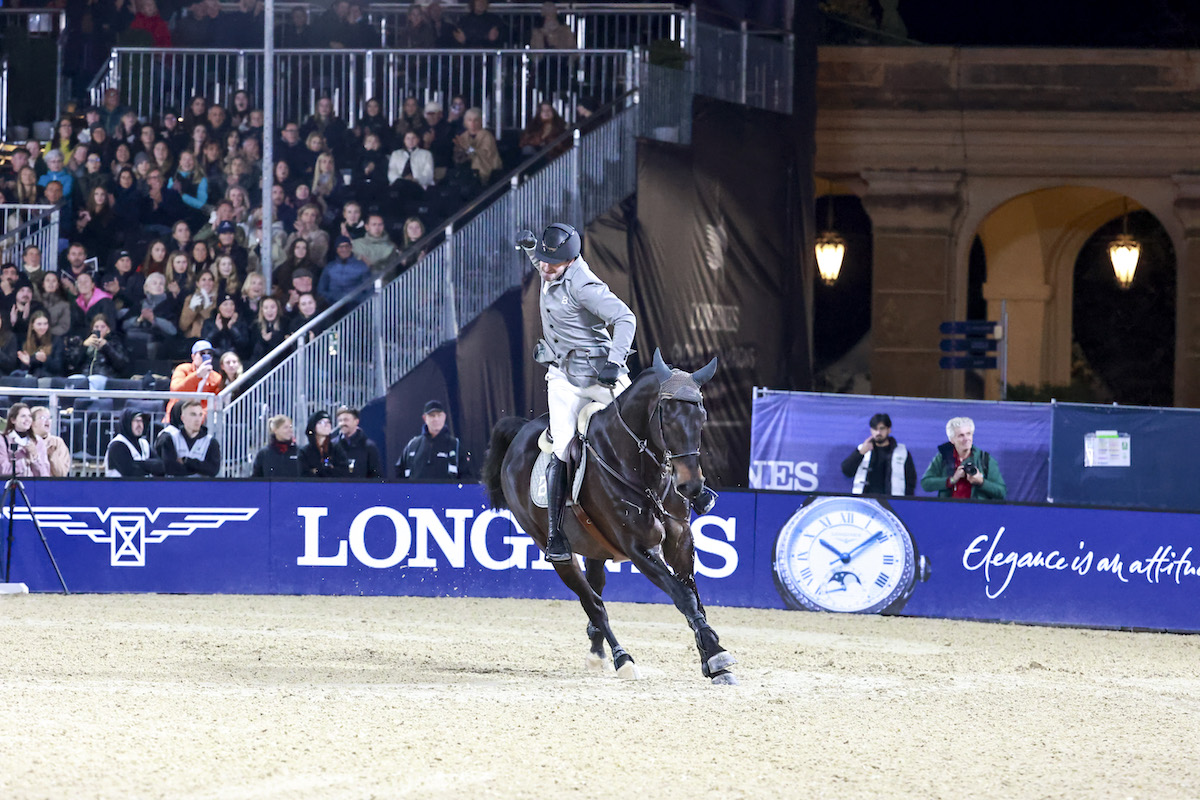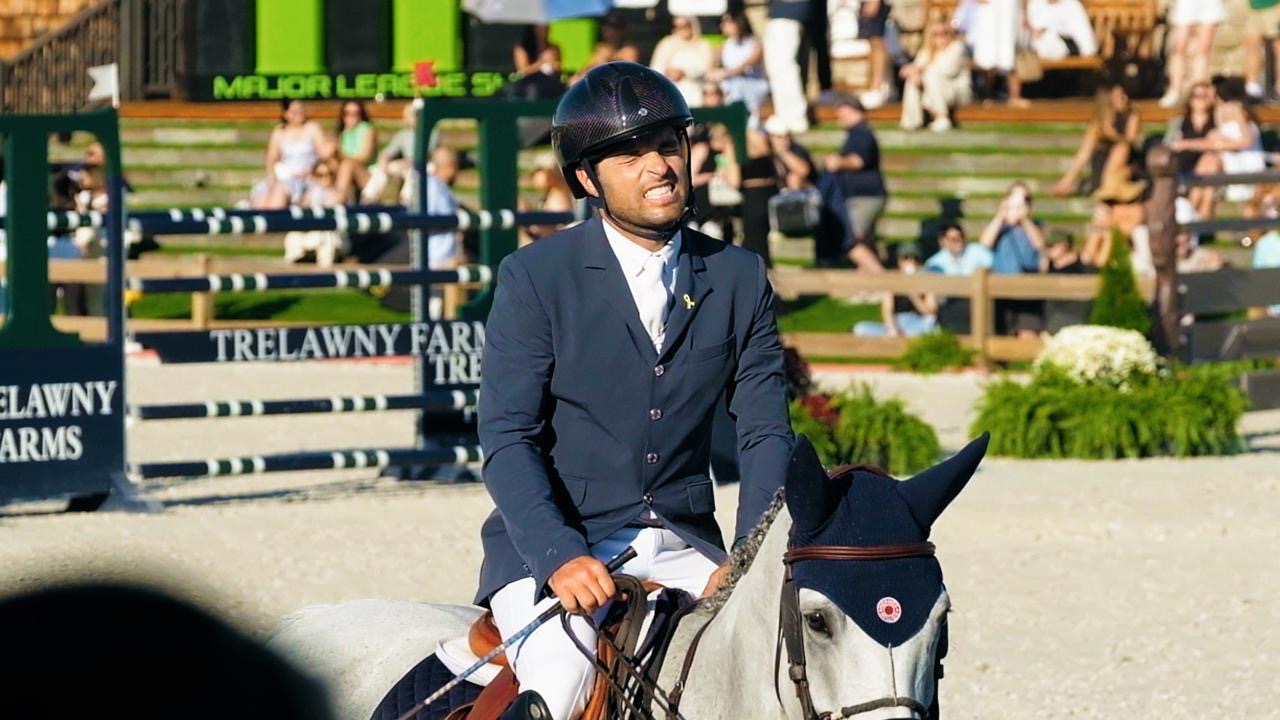There are a hundred reasons why I am gallivanting around the UK, but there have always been three main draws: Badminton Horse Trials, the Shetland Islands and, right in the middle of the two, The Kelpies.
I stumbled upon The Kelpies a few years ago while scrolling through my social feed and from the moment I saw the post I knew, one day, I had to see them. And that day was June 16, 2022.
If a picture is worth a thousand words, I wonder how many words seeing something with your own two eyes is worth? A million? I don’t know the answer. I do know photos, as powerful as they are, don’t hold a candle to the real thing.
I’m not a crier. I’m hardly even a hugger. But when I first saw these two monolithic beasts, I admit I became a little verklempt. Somehow just looking at The Kelpies, even before you’ve read anything about them, you feel their power and the absolute love people hold for horses.
They are, in short, magnificent.
The Kelpies are the largest equine sculptures in the world standing 100 feet high (30 metres), each weighing 300 tonnes and comprised of approximately 18,000 jigsaw-like pieces of steel.
Scottish sculptor Andy Scott modelled the structures on the heavy horses of a distant era. A time when these true beasts of burden helped shape Scottish industry and economy pulling barges, wagons, ploughs and coal ships. Scott used two real-life Clydesdales, Duke and Baron, as inspiration for the design.
The Kelpies live in Helix Park in Falkirk, Scotland between the Forth & Clyde Canal and the purpose-built River Carron. Water plays a role in the name kelpie.
HRH Princess Anne officially opened the sculptures to the public on July 8, 2015, and since then it is estimated that more than two million people have come to gaze skyward at the world’s most impressive pair of horses.
Why the name Kelpies?
Every time I hear the name I think of seaweed, or kelp to be more accurate. And I am dismayed, though not surprised, to report that I have once again got it completely wrong. The sea does play a part but the link to kelp, I am afraid, is too weak to cling to.
I warn you now that kelpie Scottish folklore isn’t as romantic as you might expect. In fact, it’s quite the opposite.
A kelpie is a shape-shifting water spirit who emerges from the water in the form of a horse and stands near the water’s edge to lure unsuspecting children, though I am sure a few adults have fallen prey to its allure. Kelpies have an oddly sticky coat and if you touch it, you will instantly adhere to it. The kelpie then leaps back into the water and eats whoever has attached themselves to him, which isn’t very nice.
However, a kelpie does have an Achilles heel—its bridle. If you are able to take hold of the bridle of a kelpie you gain control over it, and any other. It is believed a captive kelpie has the strength and endurance of 100 horses. And it is this part of the folklore that is represented in the most magnificent pieces of artwork.
Scottish poet Robert Burns mentions the kelpies in his poem, “Address to the Deil” written in 1785.
When thowes dissove the snawy hoord,
An’ float the jinglan icy boord,
Then, Water-kelpies haunt the foord,
By your direction,
An’ nighted Trav’llers are allur’d
To their destruction.
A few more things
Andy Scott’s sculptures are dotted throughout Scotland, and some can be found in England, Australia and the United States. If you have the pockets for it, you can commission a piece or buy a ready-made sculpture.
I did wonder, in terms of the largest equine sculpture in the world, why the Pegasus and Dragon statue at Gulfstream Park in Florida wasn’t mentioned as it is 110 feet high. But since it is regarded as a statue, not a sculpture, I suspect it falls into a different category of gigantic horse things. And technically, it is a winged horse, not a horse, horse.
Go
The Kelpies are a 40-minute drive from Glasgow and a 50-minute drive from Edinburgh. You will not regret going. I promise.
Sources


 July 12, 2022
July 12, 2022 







